| | | | Speakers at Modelling World 2014 include... | | | | | |  | |  | |  | |  | |  | |  | |  | |  | |  | | | | Presented in the order they confirmed.
View the programme | | | |  | | | | | | | | | | Tom Van Vuren
Divisional Director
Mott MacDonald
A specialist in transport modelling, demand forecasting and appraisal, with a career in consultancy and academia spanning over 25 years. Has been involved in research and development and practical applications in countries around Europe, the Middle East and South East Asia. | | | Dominic Walley
Director
Connected Economics
Dominic Walley founded Connected Economics in 2011 to fill a widening gap between the theory and practice of spatial economics. With a background in the practical application of transport appraisal techniques, recent work has concentrated on the wider economic impacts of transport projects and how they affect business behaviour and land use. Previously, Dominic has: worked as an economist within the KPMG transport strategy group; led the transport and spatial economics work at the Centre for Economics and Business Research; and worked as a transport modeller and appraisal practitioner at the transport consultancy Steer Davies Gleave. | | | Rachel Aldred
Senior Lecturer in Transport
Faculty of Architecture and the Built Environment
University of Westminster
Rachel Aldred is a Senior Lecturer in Transport at the University of Westminster, and leads Westminster's MSc in Transport Planning and Management. Cycling is her specialist area. She conducts both qualitative and quantitative research, as well as being involved in academic modelling projects. Recently, she led the ESRC funded 'Modelling on the Move' seminar series, which brought different perspectives together in dialogue on modelling, from public health practitioners and local transport policy-makers to engineers and geographers. At Modelling World her presentation will draw on themes from the seminar series to explore the traditional marginalisation of cycling within modelling. Rachel's personal website can be found at rachelaldred.org and she tweets at @RachelAldred | | | Yaron Hollander
Policy Appraisal & Sub-Regional Modelling Manager
Transport for London
Yaron Hollander specialises in transport decision-making processes, prioritising investment options and decision-support tools. He has been involved in dozens of studies where he helped to present evidence, both qualitative and quantitative, for the benefit from the investment in transport improvements. Yaron has a PhD in transport economics from the University of Leeds; he is a Chartered Engineer and a registered project manager. | | | Henry Overman
Professor of Economic Geography
London School of Economics (LSE)
Henry took his PhD in Economics from the London School of Economics and Political Science in 2000, an MSc Econometrics and Mathematical Economics (with distinction) at LSE and a BSc Honours Economics with Statistics from Bristol University. He is Director, Spatial Economics Research Centre at LSE, Director of the What Works Centre for Local Economic Growth, LSE, and a research affiliate at the Centre for Economic Performance (CEP), LSE. His major research interests include urban and regional economics, international trade, empirical tests of location models and regional and urban policy.
| | | | |  | | | | | |  | |  | |  | |  | | | |  | | | 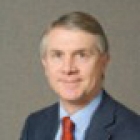 | | |  | | |  | | |  | | | | | | | | | | James Woodcock
Senior Research Associate, Public Health Modelling
UKCRC Centre for Diet and Activity Research (CEDAR), University of Cambridge
James Woodcock leads the Public Health Modelling group at the Centre for Diet and Activity Research (CEDAR), University of Cambridge. He has led the development of health impact models of transport- with a focus on the population health benefits from physically active travel. A recent study, published in the BMJ, modelled the health impacts of the 'Boris Bikes' in London.
Versions of the model are being used in both research and policy development in several countries. In other research he is using complex system models, which aim to integrate understandings of how both culture and infrastructure, to investigate how a transition to high cycling cities might be achieved. Methods used include both system dynamics and agent based modelling. In the ESRC funded project- Changing Commutes?, James is leading the creation of an agent-based model representing how cycling cultures develop through social learning and social influence, based on reanalysis of multiple qualitative data sets.
| | | Peter Jones
Professor of Transport and Sustainable Development
University College London
Before joining UCL in 2005, Peter was director of the Transport Studies Group at the University of Westminster where he carried out numerous research projects funded by organisations including the Department for Transport, the European Commission, the Joseph Rowntree Foundation, and BAA. He is a member of the Independent Transport Commission, the London Roads Task Force, the UCL Grand Challenges Sustainable Cities theme leader for Transport & Sustainable Mobility, and Chair of the RGS-IBG Transport Geography Research Group. He is Overseas Special Advisor to the International Association of Traffic and Safety Sciences, Japan, and a member of the International Steering Committee for the International Travel Survey Conference and a member of the Technical Committee of the South Africa Transport Conference. He has also acted as a consultant to Transport for London, the European Commission and several national and local governments. | | | John Miles
Arup/Royal Academy of Engineering Professor of Transitional Energy Strategies
University of Cambridge
John Miles has been a Group Board director at Arup, the global consultancy, for 17 years and has been responsible for a number of high profile projects and developments over that time. John has very wide experience in the fields of energy and resources, and has particular expertise in the areas of energy strategy and low-carbon transport systems.
As a senior member of the firm, John has been a media spokesman on subjects ranging from Peak Oil to Intelligent Mobility, and has actively contributed to the debate on carbon reduction and global warming. Outside Arup, John has held a number of significant positions including a three-year term as a commissioner on the UK Commission for Architecture and the Built Environment (CABE) and a term as a director of the UK Housing Forum. He is currently a member of the UK Automotive Council, the UK Energy Research Partnership, and a non-executive director of the Construction Industry Research and Information Association. | | | Dr Alex Erath
Future Cities Laboratory (FCL)
Swiss Federal Institute of Technology in Zurich Singapore ETH Centre
Alex Erath is senior researcher at the NRF funded Future Cities Laboratory . As research module coordinator (Deputy PI), he manages the research module on Mobility and Transportation Planning and lead in this role the implementation and further development of the large-scale, agent-based transport demand model MATSim Singapore. He obtained his PhD in 2011 from ETH Zürich (Swiss Federal Institute of Technology) where he studied the vulnerability of transport infrastructure. His main research interests are multi-agent, activity-based transport demand modelling, the interaction between transport infrastructure and the built environment as well as travel behaviour modelling. In this domain, he was involved various studies with a focus on stated preference surveys and led a project on long term fuel price elasticity that featured stated adaptation face-to-face interviews. Alex's current research focus lies in bridging the gap between practice and research when it comes to the application of large-scale, agent-based transport demand models.
| | | Paulo Humanes
Director, Business Development at PTV Group, & Devrim Kara
PTV Group
Paulo Humanes studied Transport Engineering at the University of Newcastle. He is Business Development Director at PTV Group since 2011: Working in the leading technical transportation software company developing business practices in various countries around the globe promoting best practices of software applications to address real problems, and have been involved in developing projects framework for real-time traffic prediction, signal optimization, masterplanning, public transport, pedestrians modeling as well as the more traditional micro, macro modeling projects. | | | | | | | | | | |  | | | | | |  | |  | |  | |  | | | | 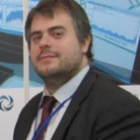 | | |  | | | 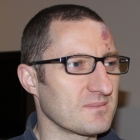 | | | 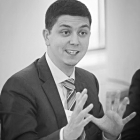 | | |  | | | | | | | | | | Josep Maria Aymamí
Senior Project Manager
TSS-Transport Simulation Systems
Josep M. Aymamí is a senior project engineer at TSS-Transport Simulation Systems. Since joining TSS in 2006, his work has included planning, traffic management and public transport optimisation projects using Aimsun and Aimsun Online and pedestrian modelling using Legion Studio. Among other projects, Josep has worked as a modelling works supervisor on a predictive modelling demonstrator (Transport for London), the decision support system for the integrated corridor management project on I-15 in San Diego (San Diego Association of Governments), the Manhattan Traffic Model (NYCDOT) and evacuation time estimations at Pickering (Ministry of Transportation of Ontario).
| | | Chris White
Transport Modelling
Mott MacDonald
Chris has more than 30 years’ experience in transport planning, transport modelling, research, software development and transport scheme appraisal. He is a Project Director at Mott MacDonald where he is also responsible for Professional Excellence Leadership and as part of this has developed and coordinated transport modelling best practice throughout Mott MacDonald. He is experienced as an expert witness at public inquiries on major transport schemes and most recently provided expert evidence on traffic and economics for the A47(T) Postwick Interchange improvement which has now receive full approval from Government.
| | | Ian Palmer
Head of Modelling & Analysis
Transport for Greater Manchester
Ian has led transport modelling and appraisal work underlying the Transport Innovation Fund programme and the resulting formulation of the Greater Manchester Transport Fund (GMTF). He then led the economic appraisal elements of the funding approvals for the GMTF transport schemes, acting as both scheme promoter and local appraisal scrutiny on behalf of the GM authorities. More recently he has been leading the analytical work behind funding bid submissions ranging from Local Pinch Pointing Funding to the Single Growth Fund, as well as setting up the local processes for devolved funding Value for Money assurance. Prior to joining TfGM (GMPTE), Ian worked as a consultant at MVA on large model systems and as a researcher into modelling traveller choice behaviour at ITS Leeds. | | | Pedro Abrantes
Senior Economist
pteg
Pedro Abrantes is Senior Economist at the Passenger Transport Executive Group (PTEG), where he is the technical lead on a wide range of issues including rail, concessionary reimbursement, regulation and demand modelling . He was the lead author of the recent Transport Works report and the 2013 Case for the Urban Bus. He was also the client project manager for the recently completed Rail North Demand and Revenue Model, the most comprehensive econometric analysis of regional rail demand to date. Before joining PTEG in 2010, Pedro spent 6 years in academia, most recently at the University of Leeds since 2007. Pedro has also worked in transport consultancy, both in the UK and Portugal. Amongst other things, he was involved in the 2004 Road Pricing Feasibility Study and led the development of the Portuguese National Transport Model. | | | Simon Shepherd
Professor of Transport Modelling & Policy Design
Institute for Transport Studies, University of Leeds
Professor Simon Shepherd has been at the Institute for Transport Studies since 1989, and has worked on various EC and EPSRC funded projects. He gained his doctorate in 1994 applying state-space methods to the problem of traffic responsive signal control in over-saturated conditions. The methods developed were termed auto-gating strategies. His expertise lies in modelling and policy optimisation ranging from detailed simulation models through assignment to strategic land use transport models. His work on optimisation covered all levels through work on an EPSRC funded project devising second-best optimal road pricing cordons/locations, developing methods and models further through the DISTILLATE project and through his Departmental Fellowship which looked at the linkages between models and policy recommendations. He continues to work with colleagues in the Technical University of Vienna in developing the dynamic model MARS providing a systems dynamics approach to strategic modelling. | | | | | | | | | | |  | | | | | |  | |  | |  | |  | | | | 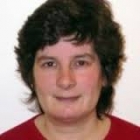 | | | 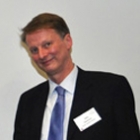 | | |  | | | 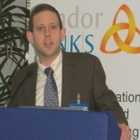 | | | 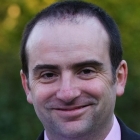 | | | | | | | | | | Helen Bowkett
Head of Transport Evidence
Welsh Government
Helen is the Head of Transport Evidence at the Welsh Government and leads on transport modelling, appraisal and evaluation. Her professional experience, mainly in the private sector for the last 30 years, has focussed on preparing demand forecasts and business cases for multi-modal transport schemes. She led the project team at Kent County Council which appraised transport strategies to support the redevelopment of Kent Thameside and planned the Fastrack bus rapid transit system. Other projects include the new railway station at Mitcham Eastfields, the amendment of the CrossRail Bill to include a station at Woolwich, the refurbishment of the Greenwich and Woolwich foot tunnels and numerous new bus stations, cycle lanes and pedestrian improvements. She is also undertaking PhD research at the Centre for Transport and Society at the University of the West of England. Her research has investigated alternative methodologies for transport modelling which could improve the ability of our modelling toolbox to forecast the impact of smart choices measures. | | | John Swanson
Associate
Steer Davies Gleave
John is head of Steer Davies Gleave's Research and Innovation group, with responsibility for the development of new products and techniques. He developed the company's Urban Dynamic Model, a simulation of how transport, employment, population and land-use interact over long periods of time, and has been using it since its first release in 2000 to help clients design practical transport and land-use policies to help stimulate economic growth. Trained in mathematics and Operational Research, he has worked in consultancy for many years, following earlier periods with London Transport and the British Airports Authority. | | | Marco Te Brommelstroet
Researcher, Faculty of Social and Behavioural Sciences, Department of Geography, Planning and International Development
University of Amsterdam
The central theme of Marco's research is to generate information and adapt models to support integrative land use and transport planning processes. This support is especially necessary, yet missing, at early phases of planning (generating integral strategic options, visions, concepts and scenarios). Currently, we are in a transition towards a transport planning domain that seeks a balance between the need for transport and the mitigation of the negative impacts. In our view, transport planning has to integrate with other planning domains to solve this dilemma.
| | | Dr Scott Le Vine
Research Associate and transportation planner, Faculty of Engineering
Imperial College London
Dr Scott Le Vine is a Research Associate and a transportation planner within the Faculty of Engineering, Department of Civil and Environmental Engineering at Imperial College London. His research focuses on emerging forms of personal mobility and the implications for infrastructure provision, energy usage, and well-being. Several of his recent studies have addressed the 'Peak Car' theory and shared-mobility systems.
He is currently co-editing (with John Polak) a Special Issue of Transportation on Shared-Mobility, and co-authoring (with Martin Lee-Gosselin) the Transport and Environment chapter of the forthcoming 4th edition of The Geography of Urban Transportation, a textbook widely-used in masters-level and advanced-undergraduate transport planning courses.
Scott is a trustee of the charity Carplus, and serves on the U.S. National Academy of Sciences' standing committees on Public Transport Innovations (TRB-AP020), Intelligent Transportation Systems (TRB-AHB15), and Vehicle Automation (TRB-AHB15[1]). He holds degrees from McGill University (BSc Geography), New York University (Masters in Urban Planning / Transportation Planning) and Imperial College London (PhD in Transport Studies).
| | | Rick Robinson
Executive Architect, Smarter City solutions
IBM
Rick is heavily involved in an IBM project in Sunderland to deliver a City Cloud; and in Birmingham is a member of the Smart City Commission and the chair of the Digital Working Group for Birmingham Science City.
In previous roles for IBM, Rick was responsible for strategy and first-of-a-kind project delivery in areas such as social media, service-oriented architecture and distributed computing. He holds a PhD in the physics of superconducting devices from the University of Birmingham and is a visiting Research Fellow at WMG at the University of Warwick where his interests include dynamic supply chains, regional economic development and healthcare technology.
Rick also explores emerging technologies and their application in city systems in his blog http://theurbantechnologist.com/ | | | | | | | | | | |  | | | | | |  | |  | |  | |  | | | | 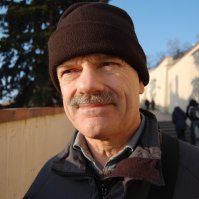 | | | 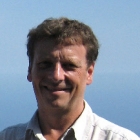 | | | 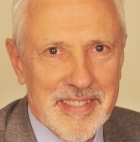 | | | 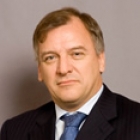 | | |  | | | | | | | | | | Tom Worsley
Visiting Fellow
Institute for Transport Studies, University of Leeds
Tom Worsley has contributed to a number of recent studies undertaken by ITS for the Department of Transport, including an international comparison of transport appraisal practice and an assessment of the sub-national economic impacts of transport schemes. He spent more than 30 years in the Department for Transport and its predecessors and has extensive experience of the use of economic analysis in formulating and developing policy, having been responsible for some of the major developments to economic appraisal, modelling and forecasting methods during his time as a senior economist in the Department. For most of this time he led a team of economists and transport modellers and was responsible for providing policy-makers and ministers with the evidence they needed to enable them to understand the likely impacts of their policies. | | | Pete Sykes
Technical Consultant
Transport Systems Catapult
Pete is a technical consultant working for the UK Transport System Catapult designing a modelling and simulation architecture to support innovative transport projects. He also undertakes work for Transport Scotland in simulating road traffic noise using microsimulation models with the intention of quantifying noise nuisance due to the peaks and troughs in sound level rather than assessing on a simple day and night average. The goal is to be able to describe the detailed change in the sound profile due to demand management and traffic control. In 1986 he was the first programmer on the Paramics project in SIAS and developed the prototype that helped win EU funding in the 1990s. Going back to the company in 1998, he was responsible for recruiting and managing the software team that released the first S-Paramics product in 2000. | | | Pierre Schmitz
Head, European and International Relations
Brussels Mobility
Pierre is a civil engineer in electro-mechanics and has a degree in public administration. He is a senior engineer in the Brussels Region Ministry and is head of the European and International Relations department in the General directorate of Brussels Mobility. He is mainly in charge of European R&D projects in ITS and road tunnel safety.
He is the representative of the Brussels Region in different European and global networks: POLIS, IMPACTS, EUROCITIES, PIARC, among others. He is also vice-chairman of ERTRAC, representing cities and regions. | | | Prof John Beckford
Transport Systems Catapult
Modelling Intelligent transport systems - A highly complex system
ITS schemes have different effects and characteristics to traditional transport schemes. John Beckford argues that if we want to 'approve' these schemes in comparison with traditional schemes then we must be able to model and compare them. He discusses the complexity of thinking about these complex systems and concludes that to operate in this area transport modellers will need to be more agile, more flexible and more collaborative. | | | Richard Bradley
Technical director
Mouchel
Achieving agility in transport modelling
Richard will discuss the way modelling will have to be constructed in order to meet the challenges of modelling intelligent mobility, and approach the subject from a "practitioner" view point.
| | | | | | | | | | |  | | | | | |  | |  | |  | |  | | | |  | | | 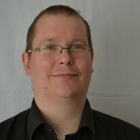 | | | | | | | | | | | | | | | | | | | Mark Ruddy
Chief Operations Officer
Transport Systems Catapult
The TSC last year and next
Mark will present a 'state of the nation' outline on what the TSC has done over the last 12 months. Mark is TSC's Chief Operations Officer, following a successful military career spanning 28 years serving in the Royal Engineers, building roads and bridges in far flung and dangerous parts of the globe. Mark joins the team after nearly 7 years with Network Rail. Most recently, he was Route Managing Director, Sussex Route, prior to which he headed up Network Rail's training and development directorate, where he helped build the UK's largest residential apprentice programme, and transformed the company's competence management system. As COO, Mark has responsibility for all project activities of the Transport Systems Catapult. | | | Roger Himlin
Traffic Appraisal, Modelling and Economics (TAME)
Highways Agency
Roger Himlin is currently the technical specialist of the Highways Agency Traffic Appraisal, Modelling and Economics (TAME) group. He has been part of the Agency for 7 years and was formerly a consultant with Capita Symonds. He has provided analytic assurance for many Agency schemes, including the third phase of Managed Motorways around Birmingham. Notably, he developed the appraisal guidance for all types of Smart and Managed Motorways projects and developed the associated IFRIIT tool. His work underpins the current shape of the Agency's Smart Motorway programme. Recently he has developed the COBALT accident appraisal software on behalf of the Department for Transport. | | | | | | | | | | | | | | | | | | | |  | | | | | |  | |  | |  | |  | | | | | | | | | | | | | | | | | | | | | | | | | | | | | | | | | | | | | | | | | | | | | | | | |  | | | | | |  | |  | |  | |  | | | | | | | | | | | | | | | | | | | | | | | | | | | | | | | | | | | | | | | | | | | | | | | | |  | | | | | |  | |  | |  | |  | | | | | | | | | | | | | | | | | | | | | | | | | | | | | | | | | | | | | | | | | | | | | | | | |  | | | | | |  | |  | |  | |  | | | | | | | | | | | | | | | | | | | | | | | | | | | | | | | | | | | | | | | | | | | | | | | | |  | | | | | |  | |  | |  | |  | | | | | | | | | | | | | | | | | | | | | | | | | | | | | | | | | | | | | | | | | | | | | | | | | |  |  |  |  |  |  |  |  |  |  |  |  |  |  |  |  |  |  |  |  |  |  |  |  |  |  |  |  |  |  |  |  |  |  |  |  |  |  |  |
| |







